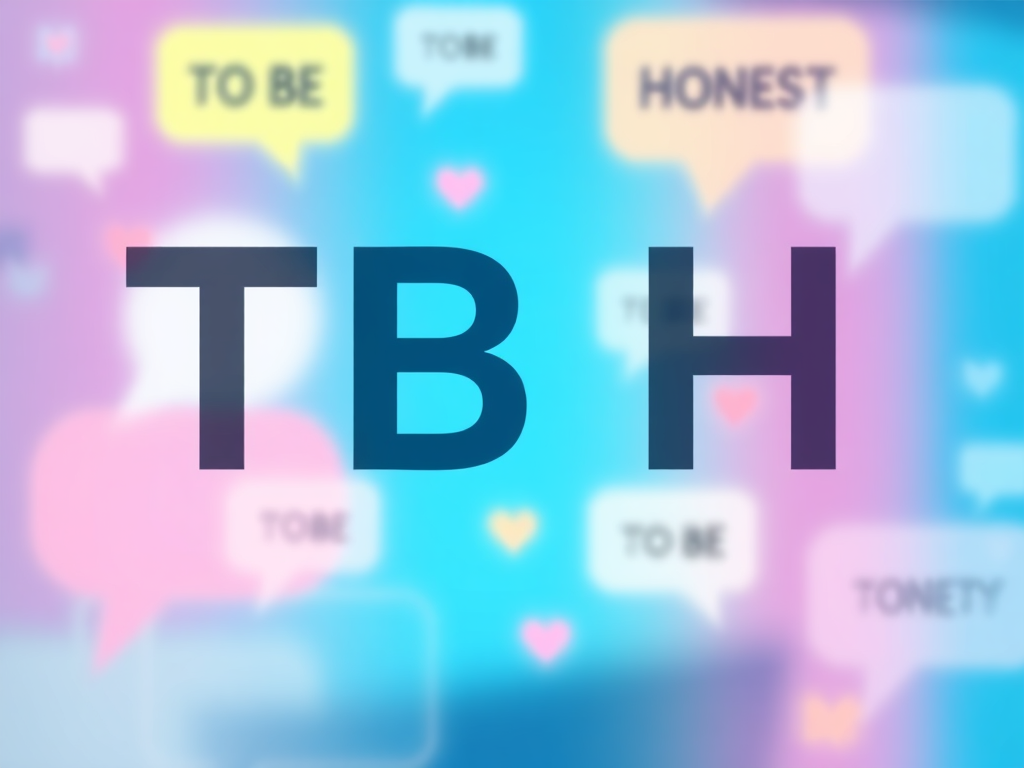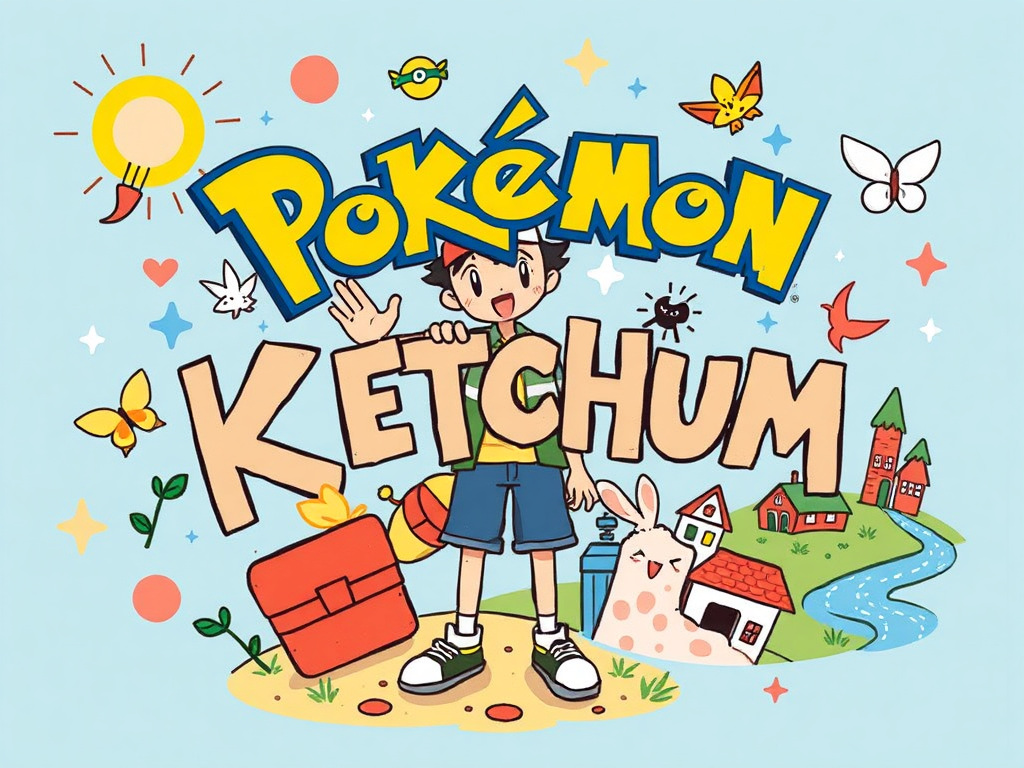What Does TBH Mean?
TBH stands for “To Be Honest” and remains one of the most enduring acronyms in digital communication. Despite being around for over a decade, TBH continues to play a significant role in online conversations, text messaging, and social media interactions in 2025.
The History of TBH in Texting
TBH Basic Definition
TBH originated as a simple abbreviation for “to be honest,” used to preface candid opinions or sincere statements in digital communication.
Background and Development
The acronym gained popularity in the early 2010s across various platforms:
- Early Internet Forums: Used to signal authenticity in discussions
- Text Messaging: Became shorthand for expressing genuine thoughts
- Social Media Evolution: Transformed from simple honesty indicator to engagement tool
Current Usage Patterns in 2025
Platform-Specific Usage
Instagram: TBH has evolved beyond its original meaning. Users often post “TBH for TBH” or simply “TBH” to encourage honest compliments or feedback from followers.
Snapchat: Commonly used in both its traditional sense and as part of social media games where users exchange honest opinions.
TikTok: While still present, TBH competes with newer slang terms but maintains relevance for authentic storytelling.
Twitter/X: Used primarily in its original context to preface genuine opinions or controversial takes.
Special-Purpose Platforms
Professional platforms like LinkedIn see limited TBH usage, with users preferring more formal alternatives when expressing honest opinions.
Psychological and Social Aspects
Trust Building
TBH serves as a digital trust signal, helping users:
- Establish authenticity in online interactions
- Create vulnerability that fosters connection
- Signal willingness to share genuine thoughts
Emotional Communication
The acronym facilitates:
- Candid feedback in social settings
- Opinion sharing without seeming confrontational
- Authentic self-expression in casual contexts
Generation-wise Differences in Usage
Generation Z (Born 1997-2012)
- High familiarity with TBH across all contexts
- Uses it both traditionally and as social media engagement tool
- Comfortable with its evolution beyond literal meaning
Millennials (Born 1981-1996)
- Original adopters who still use TBH in its classic sense
- May be less familiar with newer social media applications
- Prefer traditional “to be honest” usage
Generation X and Older
- Limited usage compared to younger generations
- When used, typically in its literal form
- May prefer spelling out “to be honest” in formal contexts
Is TBH Still Relevant in 2025?
Yes, TBH remains highly relevant, though its usage has evolved:
Why It Endures:
- Versatility: Works across platforms and contexts
- Brevity: Efficient for fast-paced digital communication
- Emotional utility: Signals authenticity in an age of curated content
- Cross-generational understanding: Unlike newer slang, most users understand TBH
Modern Adaptations:
- Social media engagement: Used to prompt interactions
- Multimedia integration: Appears in voice notes and video content
- Professional contexts: Occasional use in informal business communications
Future Implications and Trends
Predicted Developments:
- Voice AI Integration: May become verbal shorthand in voice-to-text applications
- Augmented Reality: Could appear in AR communication interfaces
- Mental Health Awareness: Increasing association with authentic communication
Competing Terms:
While newer slang emerges constantly, TBH’s simplicity and widespread recognition help it maintain relevance alongside terms like “NGL” (not gonna lie) and “FR” (for real).
When to Use TBH
Appropriate Contexts:
- Casual conversations with friends and family
- Social media posts seeking genuine engagement
- Informal feedback situations
- Opinion sharing in relaxed settings
Avoid Using When:
- Formal business communications
- Academic writing
- Professional presentations
- Official correspondence
Formal and Polite Alternatives for TBH
Professional Alternatives:
- “To be frank”
- “In my honest opinion”
- “Speaking candidly”
- “If I may be direct”
- “From my perspective”
- “I must admit”
- “In all honesty”
- “With all due respect”
Semi-formal Options:
- “Honestly”
- “Frankly speaking”
- “To tell the truth”
- “In my view”
Texting Examples Using TBH
Traditional Usage:
- “TBH, I didn’t really enjoy that movie”
- “Your presentation was amazing, TBH”
- “TBH, I’m not sure about this plan”
Social Media Engagement:
- “Comment TBH and I’ll give you an honest compliment”
- “TBH for TBH? Drop a 🔥 if you’re in”
- “TBH about my new haircut?”
Mixed Contexts:
- “TBH, this restaurant exceeded my expectations”
- “I was nervous about the interview, but TBH, it went really well”
- “TBH, your advice really helped me through that situation”
Conclusion
TBH remains a vital part of digital communication in 2025, demonstrating remarkable staying power in an ever-changing linguistic landscape. While newer slang terms emerge regularly, TBH’s combination of simplicity, versatility, and cross-generational recognition ensures its continued relevance.
The acronym has successfully evolved from a simple honesty indicator to a multifaceted communication tool that serves both traditional and modern digital interactions. Whether used in its classic sense or as part of social media engagement strategies, TBH continues to facilitate authentic communication in our increasingly digital world.
For users navigating 2025’s communication landscape, understanding TBH’s various applications—from casual texting to social media engagement—remains valuable for effective digital literacy and meaningful online interactions.

Catherine Frank, founder of BiblicalHorizon.com, shares daily prayers and Bible verses to nurture spiritual growth. With a lifelong passion for scripture and prayer traditions, she creates accessible spiritual content that resonates with both seasoned believers and newcomers seeking divine connection.



